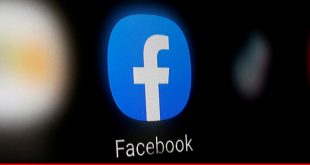When Facebook signed a $19 billion deal with WhatsApp, the world watched awestruck, wondering what this would mean for mobile messaging apps in the days to come. A few months on, everything still remains the same. Mobile messaging apps, almost all of them free, remain as popular as ever. More and more people download and register for these apps on their phones –- communication has never been easier and cheaper.
While it was Skype that revolutionized long-distance calling via PC (and later through cell phones and tablets), it is actually WhatsApp that effectively connected people with free text messages. It introduced cell phone users in Pakistan to cross-platform mobile apps, with specific focus on Android and iOS.
The popularity of these messaging services can be gauged by the increasing number of subscribers. Japan-headquartered LINE, which is owned by the South Korean Naver Corporation, has taken 45 million users in less than a year while Korea’s Kakao Talk is at 52 million worldwide (and a staggering 30 million, 90 percent of smartphone owners in its native market). Even Taiwan-based Cubie, a niche app that is barely a couple of years old, has racked up 2 million downloads, demonstrating the size of the captive market.
WhatsApp is probably the best known service and, as of February 2014, it was seeing 2 billion messages pass across its platform per day. However, other apps like LINE are fast gaining momentum as users look for convenient ways to share videos, photographs and text messages with their friends and families in a seamless and more integrated manner.
LINE is a particularly formidable competitor, as it has over 400 million registered users and earnings that rival Twitter — in Q4 2014 net sales were $120 million. LINE also stands out given that it offers unique stickers and game apps that can engage users for long periods.
In fact, preliminary findings indicate that LINE appears to be gaining traction among young smartphone users in Pakistan as it offers a range of features — for instance, gaming – that make it an attractive choice for the 18-24-year age group in the country.
LINE enables you to send free text and voice messages and has Kawaii characters with own cartoon show & merchandising, stickers, games, celebrity accounts. Most importantly, it is a desktop client, thus making it a popular choice in Pakistan. Then there is the app’s Timeline feature that allows users to share texts, photos, videos, and stickers with close friends – this is quite similar to Facebook’s status reports but is more exclusive in the sense that only people on your messaging list will be able to see these updates. LINE also offers Official Accounts of favorite artists, celebrities, brands and TV shows which you can add to your list as a LINE friend. This way, users can get exclusive news and coupons only available on LINE.
Also available are paid services for download, for instance, stickers, games (with in-app purchases) and premium phone calls. A recent poll about social messaging apps showed that LINE users send more than 1 billion stickers on a daily basis. In fact, users can create their own stickers and sell them to one another on the LINE platform out of which a 50 per cent commission is charged by the messaging app.
Meanwhile, LINE’s gaming platform has registered over 300 million downloads. LINE can also access your photo library and help you upload photos to different websites which can sometimes be a tedious process. Then there is the option of push notifications instead of reliance of emails and websites for updates. Finally, there is the ease of having icons on the home screen which makes accessing and using these apps convenient and simple.
Today, more and more cross-platform messaging apps are exploding onto the scene to take advantage of the powerful feature-set of a communication device that’s never far from its owner — from photo-sharing with built in Instagram-style filters, to HD video calling, to meme-creation tools, to cartoon characters. The Pakistani smartphone user today is spoilt for choice as far as messaging apps are concerned and it’s only a matter of time before some of the established giants like WhatsApp and Skype are replaced by newer, more improved apps like LINE.
 PAGE Blog Business Weekly Magazine
PAGE Blog Business Weekly Magazine

